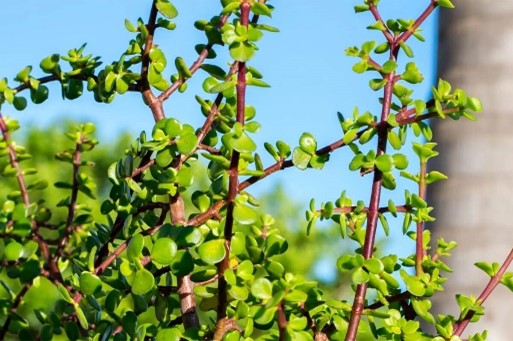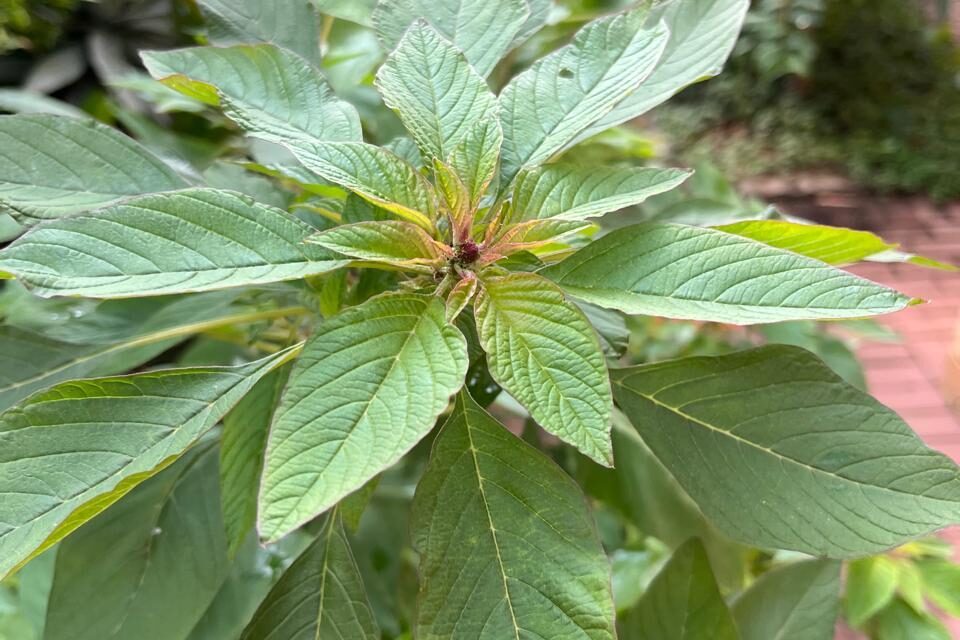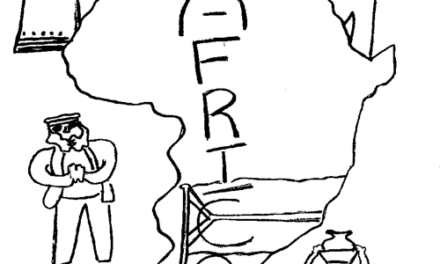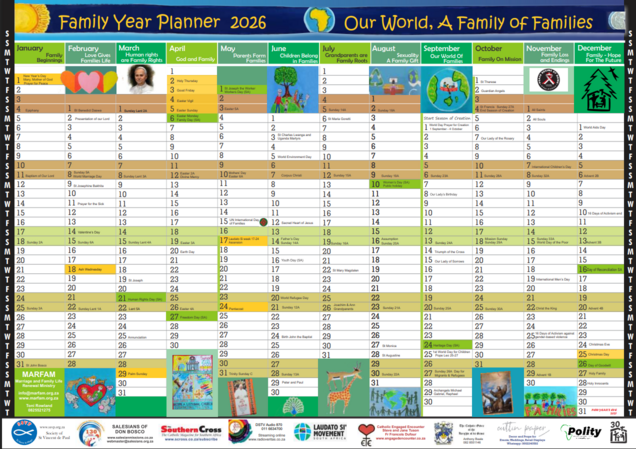MARFAM FAMILY MATTERS WEEKLY E-NEWSLETTER 9 APRIL 2025

As part of the Laudato Si Action Platform (LSAP) Family Sector MARFAM has been promoting an eco-family-friendly focus for more than a year after the earlier spekboom promotion. Laudato si, which means “Praise God,” is Pope Francis’ 2015 document subtitled Care of our Common Home. This praise and care is for all of creation, for people, but also for animals and plants because as he repeats constantly “everything is connected.” Caring includes eating healthy food. Nature provides us with many edible and nutritious wild plants which traditionally were consumed more widely than today. They should be protected and encouraged, especially where biodiversity and food security are at risk. Healthy eating, by all, for all, is best for a healthy planet, from bugs and beetles to elephants and energetic young creatures of every kind.
A recent experience I had with a plant, amaranth, was both funny and not funny. Edible amaranth, locally known as marogo, imbuya or by other names, taught me a number of lessons; cultural, relational and also spiritual. I was given some seeds by a friend and as it happened, after being distributed during a prayer service, they ended up scattered around our retirement village. Initially it was without our being aware exactly what they were. Imagine the puzzlement when a number of very quick-growing plants sprung up in people’s gardens and grew furiously up to 2 metres in height. Were they weeds, as some believed, invasive and a potential danger, or just a very useful edible specimen, well-known by all African people but not by most of us, white urbanites? I loved my edible giant and in my ignorance was eagerly waiting for it to produce its seeds, the end of its life cycle. I did learn some things from my neighbour’s black carer but still we did not fully make the connection. Those in the know harvest the leaves, cook and eat them as a tasty spinach and hold back the seeding stage as long as possible. However the seeds themselves are nutrient rich too and can also be used as sprouts and micro-greens. So we were able to learn from one another. Who really knows that amaranth, historically grown all over the world, has a higher food value than spinach, more proteins and lots of minerals and vitamins? But who cares?
Today’s human eating habits are often not the healthiest and obesity and malnutrition in families, rich and poor is common, eating too little or too much of the wrong foods. The problem is recognized, but is it necessary? Eating correctly, even making edible plants a part of our diet can help to combat this and can also be very cost effective. The LSAP goals can guide us, also as educators, to promote wellbeing beginning in families. The goals include the cry of the poor, the cry of the earth and promoting sustainable lifestyles.

The not so funny but sad part of the story is that some residents considering the plants to be harmful weeds, versus useful weeds, laid a complaint with the management who responded with unwarranted aggression and eradicated all they could find and pretty well banned the plants from our village. I rescued and saved some of my giant from destruction, having begun to understand its real value. I am still continuing the education and promotion of these and other edible plants wherever I can. As an educator and activist I grapple with accepting the reality that in a country where many people, urban and rural, are living in severe poverty and maybe unnecessarily suffering from hunger. Not only amaranth/marogo, but many other edible plants exist, – I’m told black jacks too! – Some grow wild, but they can be cultivated easily and at almost no cost, except for some occasional watering
Even after the rather unpleasant way in which the matter was handled I am still persisting with my eco-friendly campaign. I reached out to various others, some within our Church environmental justice and peace groups, others in the commercial world, or just simple people who live closer to nature than I have done. In various ways am still learning the traditions of the indigenous people and It has been heart-warming to make contact with some other enthusiasts. We believe, and in a true Jubilee spirit, we Hope. As MARFAM eco-friendly families we can be Signs of Hope by our contribution to healthy eating plant-based foods. However, growing and eating healthy edible indigenous vegetables, fruit and other trees products, can alleviate some of the poverty in the community. Promoting this in health and poverty alleviation campaigns is needed.

I pray that families as Signs of Hope could plant and grow practical and also spiritual seeds of hope. Adopting such an attitude together during this Lenten season could become a lasting interest and habit. Isn’t watching things grow, and admiring the beauty of God’s creatures much more enjoyable than some other environmental tasks, like cleaning up, recycling, lobbying around fossil fuel or even having to cut down on spending even though all are important. Laudato Si, leading up to its 10th anniversary in May, has many messages for us in caring for our common home. In the areas of biodiversity loss and consumerist attitudes towards waste healthy eating healthy plants is a good way to go. With St Francis let us praise God for all his creatures, especially Mother Earth who provides us with food and water and joy. TR Family Weekly 9 April 2025.

THOUGHTS FOR THE DAY. APRIL 9.
April 9. “Our God, whom we serve is able to deliver us.” “Are there really still people who are so committed to their faith that they really think God will save them from harm?” Priscilla asked. “Well isn’t that what martyrdom is?” “Not really, because martyrs even risk their lives.” “Of course we only hear about them because they die, like Daswa. What about other martyrs these days who are killed for their beliefs but don’t have a choice about that?” “Talking about faith miracles do happen too, people get healed or disasters are avoided after prayer. I heard that a massive hurricane was going to hit Mexico and when the people prayed it just petered out into a ordinary storm.”
Reflect, share and act. Scripture: Shadrack, Meshack and Abednego said, “Our God, whom we serve is able to deliver us from the burning fiery furnace. If not, we will not serve your gods or worship the golden image which you have set up. Read Daniel 3: 14-28. Pope Francis. The preaching of Jesus is made visible once more in the response of faith Christian are called to offer by their witness. FM16 JUBILEE. The most convincing testimony to this hope is provided by the martyrs. Steadfast in their faith in the risen Christ, they renounced life itself here below, rather than betray their Lord. Martyrs, as confessors of the life that knows no end, are present and numerous in every age, and perhaps even more so in our own day. We need to treasure their testimony, in order to confirm our hope and allow it to bear good fruit. The martyrs, coming as they do from different Christian traditions, are also seeds of unity, expressions of the ecumenism of blood. I greatly hope that the Jubilee will also include ecumenical celebrations as a way of highlighting the richness of the testimony of these martyrs. SNC 20. Choose an act of love and sacrifice from the list, also published at www.marfam.org.za







Recent Comments